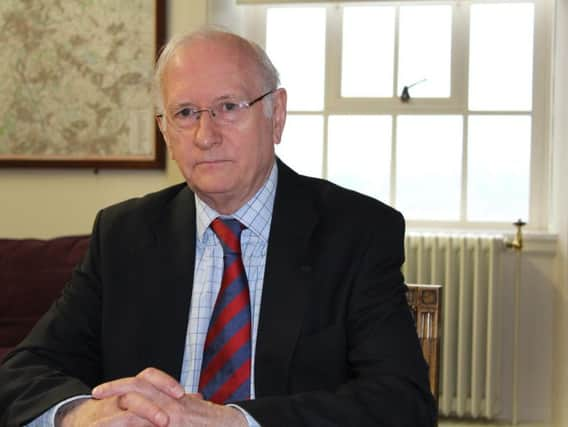Police told to work more closely with councils and care homes to find answers to high-cost problems


A Police and Crime Plan, which sets out the objectives of Police and Crime Commissioner Dr Alan Billings, has been updated to reflect developments in the policing arena and while the overall objectives remain unchanged he has made it clear there is a need for more interaction with other bodies.
However, Dr Billings has also made it clear the move is not intended to simply shift responsibility onto other agencies, but to find solutions which prevent problems occurring in the first place.
Advertisement
Hide AdAdvertisement
Hide Ad“Almost every day there are high risk missing persons, people who are very vulnerable, maybe someone with dementia or a child, often from a children’s home,” he said.
“The commitment that has to be made, in resources, is huge. In one sense it is not police work but clearly if there is no-one else doing it, the police have to do it.
“It is this conversation about how you stop this happening in the first place that you need to have, if it is with children’s homes or the local authorities in charge of children’s homes.
“There are all sorts of partners and potential partners the force needs to work with.
Advertisement
Hide AdAdvertisement
Hide Ad“What we have to be careful of is that we don’t just shove our demand onto other people in the public sector,” he said.
In the updated plan, Dr Billings states: “The big task in 2018/19 is to understand what the pressures on the service are and how they can be managed.
“Much policing these days is not directly about crime. For example, it may be about safeguarding the vulnerable – such as missing people or those with mental health issues.
“But others in the public, private and voluntary sectors have responsibilities here as well – the NHS, local authorities, local prisons, children’s homes, the fire service and so on.
Advertisement
Hide AdAdvertisement
Hide Ad“The police have to find ways of working with them, because many of these sorts of issues are not directly solvable by the police.
“Working together to solve problems becomes more urgent for all organisations as funding gets tighter and resources diminish.
“During the year I will be asking those I commission to show me how they are doing all this by looking at a number of outcomes: ‘safer communities’, ‘trust and confidence in policing and crime services’, ‘serious and organised crime’ and ‘efficiency, effectiveness and value for money’.”
The priorities in the plan are all concerned with keeping people safe and free from living with the fear of crime.
Advertisement
Hide AdAdvertisement
Hide AdThey have remained unchanged because they still apply and also because Dr Billings was unwilling to burden the force with a changing set of priorities at a time when it has already been going through major change.